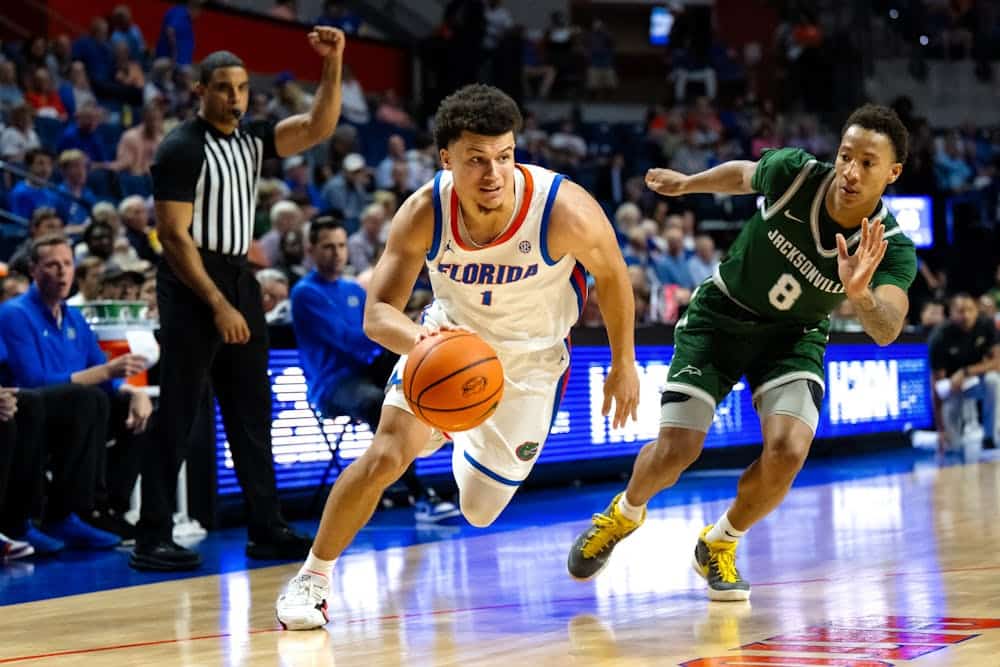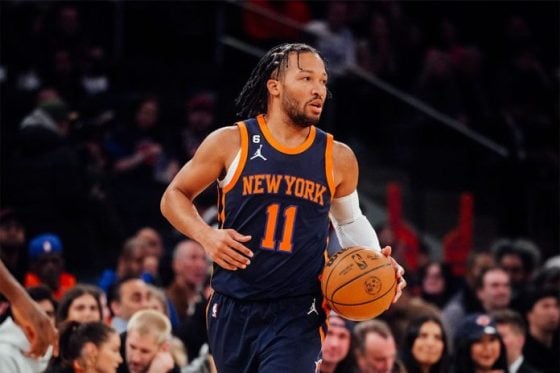The Boston Celtics stormed through the Miami Heat in the first round of the NBA Playoffs. They held Miami to less than 90 points in three straight games following a Caleb Martin-led fiasco in Game 2. However, that ended up being nothing more than a blip on the radar.
But heading into the Celtics’ Round 2 series against the Cleveland Cavaliers, that blip is more relevant than ever.
The Heat stole a game from the Celtics thanks to a historic three-point shooting performance. They drained 23 threes—two short of the all-time NBA playoff record. Meanwhile, they made just 33 triples in the other four games combined, including 21 in the final three contests.
Cleveland just wrapped up a seven-game slugfest against the Orlando Magic. And in this case, slugfest is the perfect term, as the two sides got a huge chunk of their scoring done inside the arc.
In seven games, the Cavaliers made just 60 three-pointers, averaging out to under nine per game.
Boston made 75 threes in five games against the Heat.
Math runs today’s NBA. Just ask Joe Mazzulla. Coaches and front offices have pages upon pages of in-depth statistics that help them run the team in the most efficient way possible. They know which players should drive left versus right. They know which players bode well in post-up situations. They know which defensive matchups they are willing to live with based on the percentages.
But at the end of the day, the math of three is greater than two looms large over this impending series.
The Cavaliers’ three-point struggles run deeper than their makes (even though they only made 10 or more threes in two of their seven games).
The Cavaliers only attempted 30 or more threes four times in their seven-game series. And one of the contests, Game 3, stands out among the rest.
Cleveland took just 17 threes. In 2024.
Photo by David Liam Kyle/NBAE via Getty Images
There’s room for improvement from deep for the Cavaliers. Max Strus shot just 31.6% from distance against Orlando. Caris LeVert shot 23.5%. Georges Niang shot 13.3%. All of those guys could improve their numbers, but it’s still not enough to match the three-point firepower Boston employs.
The Magic dealt with similar woes from behind the arc throughout the series. And in the end, the Cavaliers were able to grit out a victory after an impressive Game 7 comeback.
The Celtics are not the Magic.
The Celtics attempted 42.5 threes per game in the regular season (first in the NBA). The Magic took 31.3 (29th in the NBA). The Celtics shot 38.8% from behind the arc in the regular season (second in the NBA). The Magic shot 35.2% (24th in the NBA).
It took the Cavaliers seven games to dispatch a Magic team that was statistically one of the worst three-point shooting teams in the regular season. And now, they’re squaring up against the best.
These two teams faced off three times in the regular season, and the one victory Cleveland secured came off the back of a miraculous three-point barrage from Dean Wade in the fourth quarter. It was a miniature version of Celtics-Heat Game 2. Three-point shooting won them that game. (Also, Wade has been out while dealing with a knee injury, so that Celtics demon is resting for the time being.)
There are a million other minute details that will go into this series. How will the Celtics attack Donovan Mitchell and Darius Garland in mismatches? How often will they get Jarrett Allen guarding Jayson Tatum on the perimeter to exploit that cross-match? Can the Cavaliers pick on Al Horford if Boston brings him to the level in the pick-and-roll? Will Strus, LeVert, or another Cavaliers role player step up to fill their scoring gaps? All are valid questions.
But three-point shooting is what will determine this series. If the Cavaliers magically summon the three-point voodoo that Miami found in Game 2, the variance will be taken out of the equation. Until then, the point stands.
If Boston’s offense generates the threes they’ve been able to get all season, there’s a good chance they will simply out-shoot the Cavaliers, who cannot find, and may not have, a rhythm from behind the arc.






